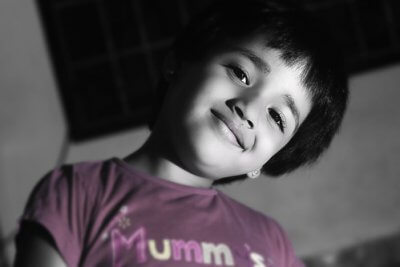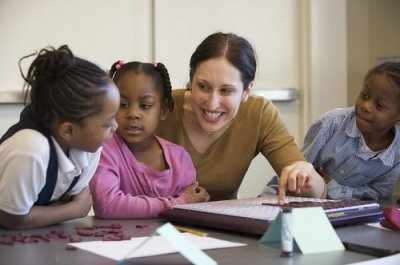2e Kids – Do You Have a ‘Twice Exceptional’ Child?
by Andrea M. Darcy
Know your child is exceptional? But others can’t see it because of a learning difference? Or does your gifted child struggle in ways hidden by their talents? It’s time to learn about 2e kids.
What are ‘2e kids’?
Twice exceptional children, or ‘2e kids’, are outside the norm in two areas for their age range. They are on one hand gifted, but on the other hand have a learning or developmental challenge to deal with.
Unfortunately, one exception can often hide the other, and means your child may not get the support he or she needs.
Gifted children can compensate in ways that hide their learning challenges. Or the educators and adults around them are so dazzled by the child’s smarts, they don’t even think to ask if the child is struggling.
And children with learning differences can feel too frustrated or misunderstood to try and their gifts are overlooked. Or they can not be given the opportunity to show their unique genius as it isn’t covered by their school’s curriculum.
Is ‘twice exceptional’ a thing here in the UK?
‘Twice exceptional’ is a term popular in America and around in educational circles since the 1990s. But in the UK it’s more commonly called ‘dual exceptionality‘ or even ‘multiple exceptionality‘.
The charity Potential Plus UK estimates that up to 10 per cent of children with high learning potential have a unique educational need. Up to 5 per cent of children identified with learning challenges also have a high learning potential.
Examples of 2e kids in action
An example is a child recognised as extremely gifted, or even burdened with the label ‘genius’. They are often easily bored, rarely finish what they start, and tend to daydream instead of listen in class.
If they are lucky, they might get recognised as also having attention deficit disorder (ADHD) and be offered support. Otherwise, it can be seen as part of their unique genius, and can go overlooked until it sabotages their potential and they become an underachieving adolescent or adult.

photo by: Belinda Fewings
Or a child could have dyslexia and dyscalculia, struggling with both reading and maths. They might be seen as ‘unintelligent’. Meanwhile, later down the line it’s recognised they are highly gifted with understanding complex issues and explaining concepts.
A study on children with dyslexia published in the Gifted Child Quarterly found 19 per cent of dyslexic students to be highly gifted in verbal reasoning.
Or perhaps your child is seen as autistic. Their brilliance with building complex structures isn’t recognised as it’s not something done in the classroom. They aren’t recognised as actually gifted, or it brushed off as ‘part of their autism‘.
How do I know if my child is gifted?
Having a high IQ doesn’t always equate to excelling at school. Some children who are gifted find traditional ways of learning boring, so ‘zone out’. They hand in messy, half-hearted assignments. Or their minds might think in very creative, wide ways that simply don’t match traditional learning.
And being gifted can take forms other than being intellectual. It can include creativity, perception, and highly attuned motor skills.
Your child might might:
- come up with ideas easily
- understand big ideas over details
- have an advanced vocabulary even if they hate writing
- be able to make or build things other kids can’t, or tell complex stories, or be otherwise creative
- or be very good with detail and have an excellent memory
- tend to learn things faster than other kids, even if they don’t then apply themselves
- manage to do decently in all areas of learning without trying hard
- or excel in one thing, like telling stories, building things, music, or maths.
And how do I know if my child has a learning or developmental issue?

By: Nithi Anand
It’s not just issues with reading, writing, or numbers that mean your child struggles.
There can be many other signs, such as:
- language and communication struggles
- poor behaviour management
- being seen as ‘lazy’ and ‘different’ to other kids
- grades that swing wildly from very good to very bad
- struggles with social skills, or a tendency to be withdrawn
- overwhelmed by sensory input (sounds, colours, smells)
- emotional struggles such as anxiety, being easily stressed, or often feeling sad
- low self-esteem and confidence
- an inability to bounce back from challenges and be resilient.
A brief overview of learning differences and developmental disorders
Dyslexia is estimated by the UK’s Mental Health Foundation to affect 10 per cent of the population. It affects not just reading, but the ability to receive and retain information.
Dsycalculia means a struggle with anything to do with numbers and symbols, like math, money, time, quantities.
Dysgraphia is a disconnect between motor skills and the language centre of the brain. Handwriting can seem hard, as can spelling, and thinking and writing simultaneously.
Dyspraxia often comes alongside dyslexia or ADHD. It affects muscle control, meaning poor coordination and spatial awareness.
ADHD, or ‘attention deficit hyperactivity disorder’, does not always involve hyperactivity. Its main symptoms are lack of focus and inability to commit to things and finish them. While some children are hyper, others are dreamy.
Autism spectrum disorder means your child veers toward rigidity of thought and action and has social differences. Change is not easy for them. Sensory overload can be a problem. They don’t easily read social cues and can be left lonely and misunderstood.
Auditory processing disorder means your child’s brain interprets sound in a different way to the norm. They might tell the difference between words, and struggle to concentrate with background noise.
Non-verbal learning difficulties can be related to autism. Your child will be clumsy and poorly co-ordinated, and can struggle to read body language.
Other issues that would be included under ‘2e kids’ can be being gifted alongside obsessive-compulsive disorder or something like Tourette’s syndrome. The idea is that something blocks their learning and gifts.
What do I do if I suspect I am the parent of 2e kids?
If your child’s school is not in agreement, or can not test your child in the time frame that works for you, you can work with a private educational psychologist. They are trained to test for both giftedness as well as barriers to learning.
It can also be helpful to help your child with opportunities to learn that match their strengths. This might be multi-sensory learning, hands on learning, or a chance to do creative, different things outside the classroom.
Ready to get your child the help he or she deserves? We connect you with friendly, expert, and highly rated educational psychologists in central London. Or stressed by parenting exceptional kids? Find yourself some support on our therapy booking platform, where you can also find online counsellors you can access from anywhere.
Still have a question about 2e kids? Or want to share your own story with other readers? Post in the comment box below.
 Andrea M. Darcy is a leading mental health writer with training in counselling and coaching. She was a 2e child herself, first diagnosed as gifted with a high IQ and later with ADHD, so really enjoyed writing this article. Find her on Instagram @am_darcy.
Andrea M. Darcy is a leading mental health writer with training in counselling and coaching. She was a 2e child herself, first diagnosed as gifted with a high IQ and later with ADHD, so really enjoyed writing this article. Find her on Instagram @am_darcy.






We are seeking guidance and advice for our 5 year old girl Soraya, who has, we feel, behavioural problems. We would like to discuss these with a professional to understand what the issue is and what help is out there
Hi there, we are looking for an ASD assessor with 2e expertise. Can you please let us know in you have any recommendations? We are based in London. Thanks.